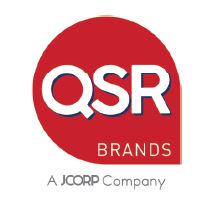Business transformation has its challenges, but with the right organizational culture in place, the journey can be smoother. Nehchal Khanna, CEO and Managing Director of QSR Brands Holdings Bhd. (QSR Brands), a privately owned food-technology company in Malaysia, is resolute in his pursuit to lay down a fresh and robust foundation for the company.
As a franchisee of KFC and Pizza Hut in Malaysia, Singapore, Brunei and Cambodia, QSR Brands has established itself as a prominent food chain brand in the market.
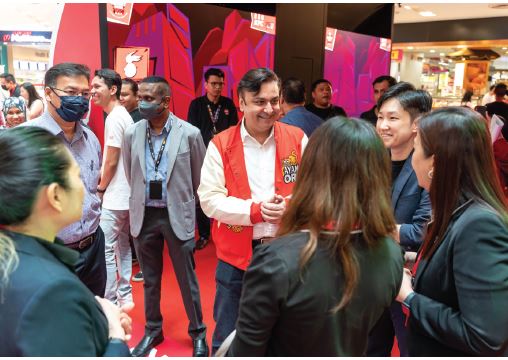
The company introduced a new “flywheel” model a year ago, says Khanna, which sets the tone for the newfound culture and encapsulates the distinctive QSR approach to operations. This flywheel is underpinned by four core values: growing people as builders; daring to innovate boldly; never giving up; and putting customers first.
“One of the first priorities was to transform people and their attitudes,” Khanna says. “We knew we needed a set of principles and a culture to which everyone could subscribe. We wanted everyone to behave in a more entrepreneurial way by taking ownership.”
The transformation was imperative, says Khanna, as it would help the company scale and enhance its agility in tackling prevailing market challenges, such as hyperinflation, supply chain disruptions, rising interest rates and evolving consumer demands.
Catalyst for Change
Looking back at the events over the past few years, Khanna notes that the pandemic has played a pivotal role in reshaping the company’s perspectives, fostering better adaptability.
“In some ways, the pandemic has served as a springboard and a catalyst for change for QSR Brands,” he says.
The nationwide lockdowns in Malaysia and the rest of Southeast Asia had an impact on the company’s business, which derived on average 40% of its revenue from dine-in services. “We made a bold decision to pivot very early on, turning to e-commerce and digital channels,” says Khanna.
The decision paid off as QSR Brands successfully concluded the year 2020 with revenue that was “closely comparable” to that of 2019 despite the widespread challenges faced by numerous businesses.
Khanna also emphasized that none of these changes could have taken off without the strong backing of the board, especially the Chairman, Tan Sri Jamaludin Ibrahim, and the shareholders. “I am really grateful that the board and shareholders gave me the support and confidence to carry these initiatives through. That made all the difference,” he says.

Growth Momentum
Today, QSR Brands has over 1,400 KFC and Pizza Hut restaurants across Malaysia, Singapore, Brunei and Cambodia, and employs over 30,000 people across these markets.
QSR Brands has seen positive growth momentum since the start of 2023, says Khanna, adding that the company has achieved double-digit growth in the first half of the year.
He attributes this success to three key drivers, namely, the company’s people and culture, its new business model and technology.
People at its Core
One of the key initiatives QSR Brands undertook was to further empower its employees, as the company believes that its future success depends on the “scalability of cultural change across the organization.”
Khanna says, “The leadership team is entirely empowered; they have a great deal of autonomy and they are able to pass that down through the ranks.”
The company also emphasizes continuous employee support, exemplified during the pandemic when it chose not to retrench any of its 30,000 employees, in contrast to industry trends.
The company has also set up a special talent development initiative—GROW— grooming around 100 high-potential individuals as next-generation leaders through an in-house MBA-like initiative.
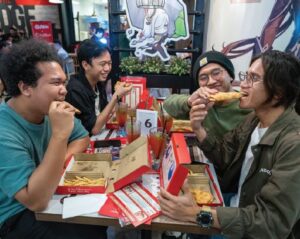
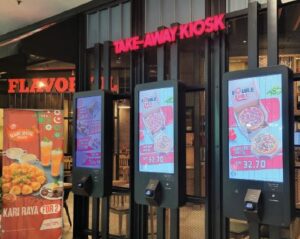
Continuous Innovation
As part of the efforts to refine its business model, Khanna has dedicated substantial time to crafting proprietary frameworks. Notably, the transaction velocity strategy, comprising eight levers, emerged as a standout framework. Khanna says, “Sales growth is really about transaction growth, serving as a direct sales indicator.”
Another lever is menu innovation, an area where QSR Brands excels. New menu items such as the Juicy Whole Chicken, Satay Burger and Melts have not only enticed new customers but also increased repeat visits.
To further enhance the customer’s digital experience, the company launched a new KFC Malaysia mobile app last year, offering e-commerce, gamification, loyalty programs and digital vouchers. Within 11 months post-launch, the app has garnered an impressive 1 million subscribers.
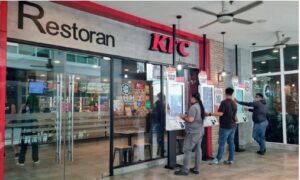
Looking Ahead
Recognizing that QSR Brands plays an important role in the area of food sustainability, Khanna says the company takes Environmental, Social and Governance (ESG) matters seriously.
“Having a strong governance in place is crucial as it will be the key pillar that supports the group’s environmental and social initiatives,” he says. “We have a new head of governance, and he is taking the lead so that everyone is putting the firm first when making any decisions.”
Looking ahead, QSR Brands aspires to improve its ranking among restaurant operators worldwide, aiming to secure a spot in the top five within the next three to five years. This objective aligns seamlessly with its overarching vision of becoming the foremost food-technology company in ASEAN.
